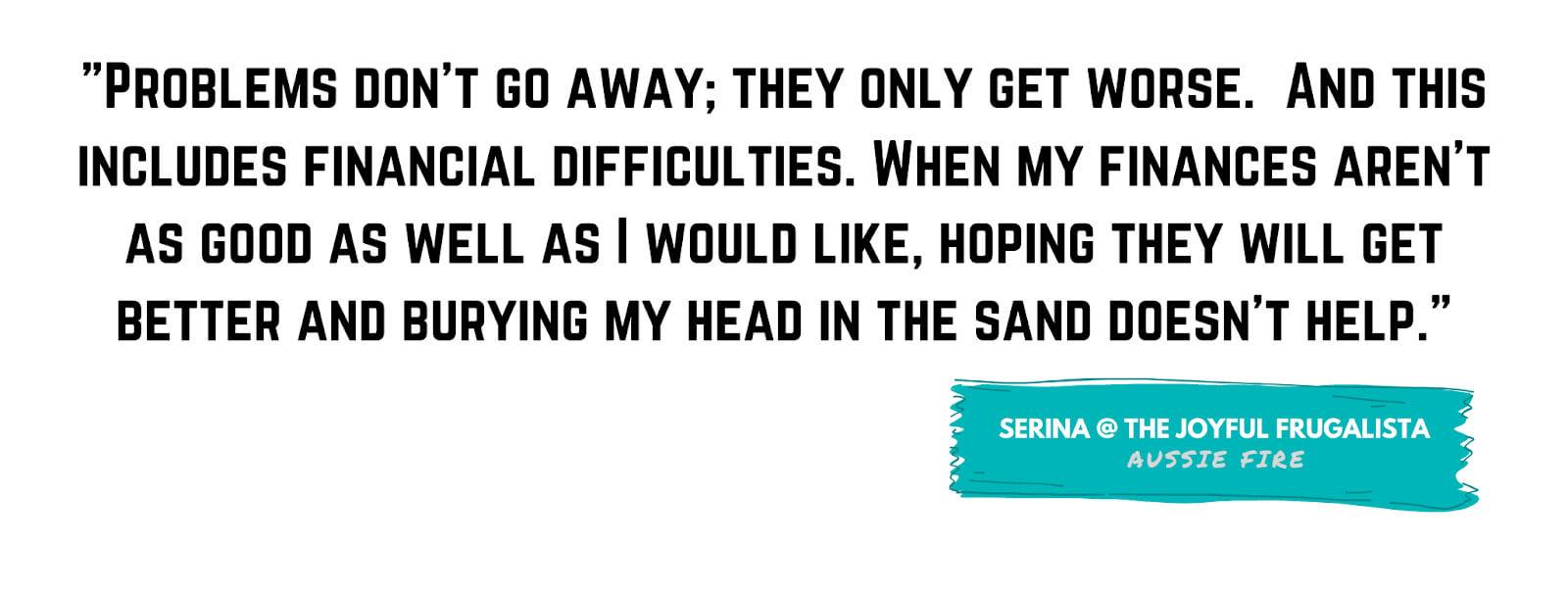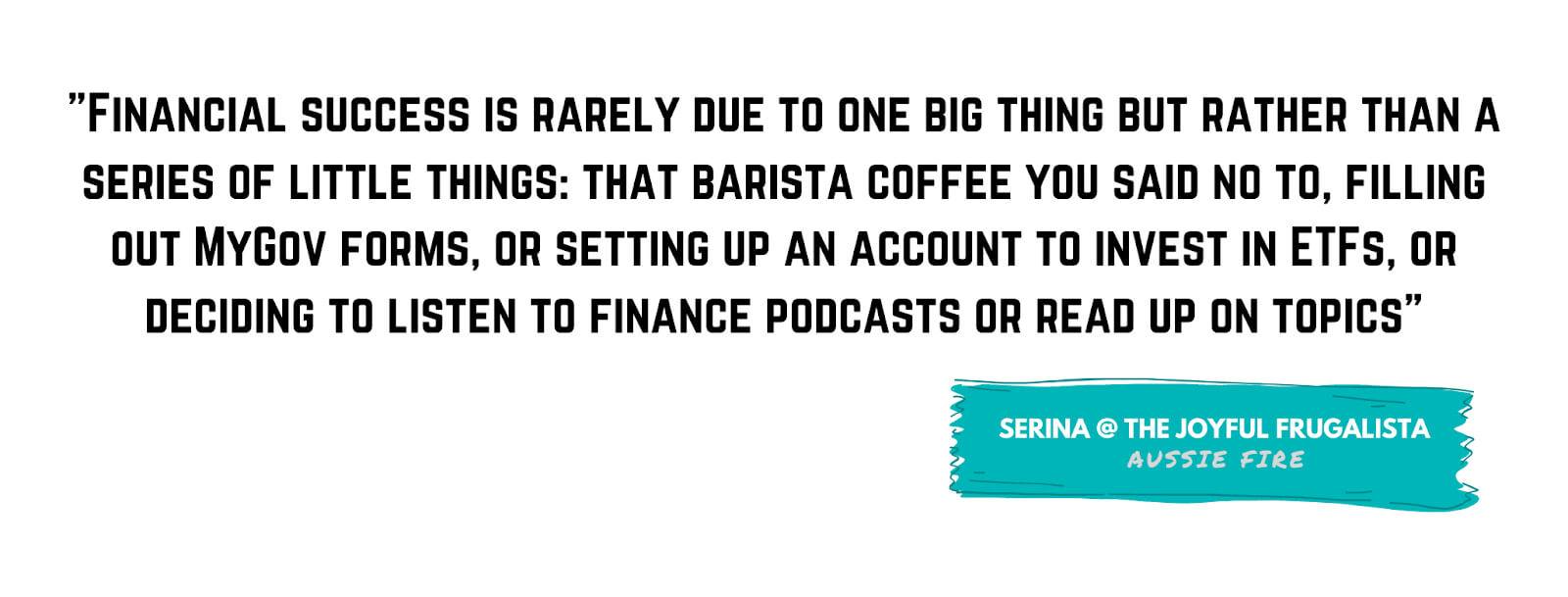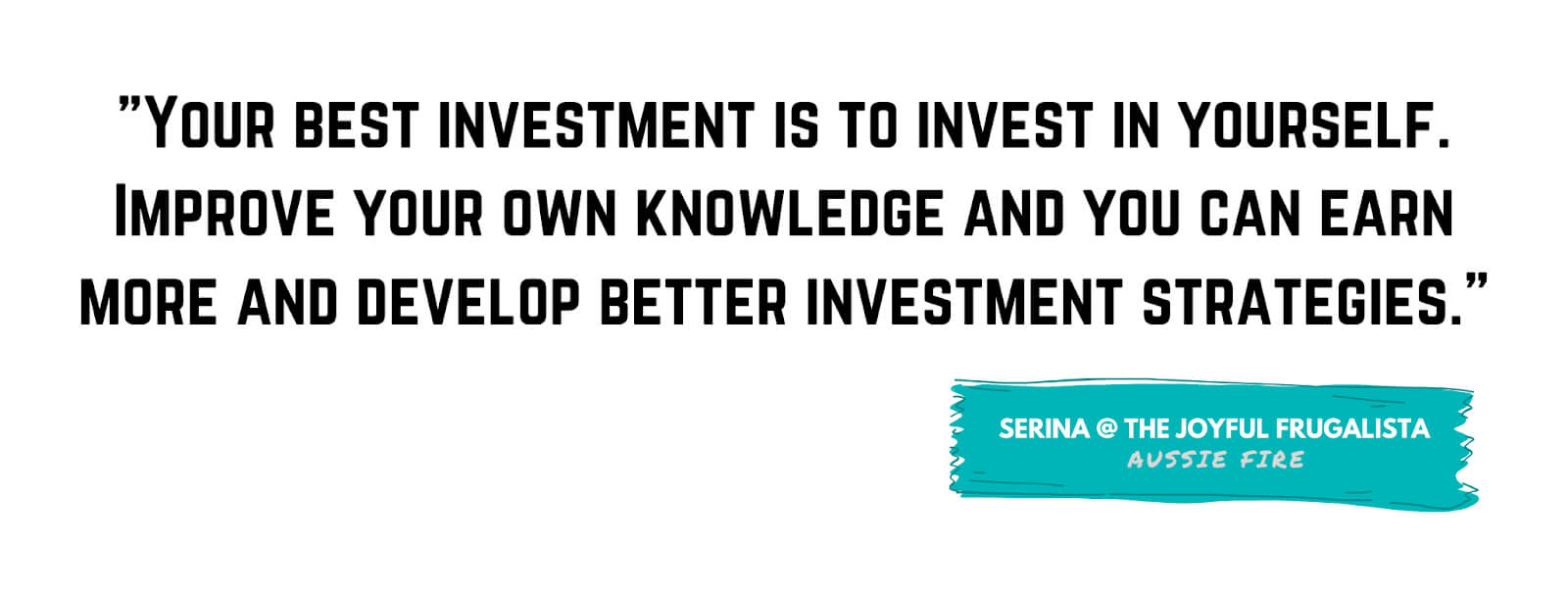When times get tough, the tough get resilient. Or so we like to think.
Although some people may claim they had the power of prophecy, few of us could have predicted the dramatic events of 2019 or 2020. I certainly could not have predicted the bushfires, toilet paper shortages, pandemic or school and business closures.
But I did know that Australians have some of the highest levels of personal debt in the world. #lifestyle and #treatyourself and #YOLO have been keywords in our collective vocabulary, up with a love of good food, fine wine, travel and Instagramming it all. Our financial contingency planning was virtually non-existent. Yet with global trade wars looming and retail businesses going bust in 2019, there were signs that economic easy times were coming to an end and we needed to prepare. Or maybe we didn’t want to know.
Financial disaster can happen to anyone at any time. In this article, I share some tips for navigating financial stress and building long term financial resilience, specifically:
My story
Outwardly, I had it all. I had four degrees, spoke fluent Mandarin Chinese and was a bubbly diplomat on her first posting to Asia. I had a charming husband, a young son and a baby. We went to gala charity events, cocktail parties and National Day receptions. I mixed with CEOs, CFOs, General Managers, economists and the mega-wealthy. I shook hands with President, the Opposition Leader, and from time to time, was even on TV and radio. We lived in a posh neighbourhood in an apartment building that had marble tiles and artwork in the carpark. Our humble sedan was parked next to Rolls Royces, Lamborghinis and Ferraris.
But appearances can be deceiving.
For one thing, I was a secret frugalista who wore op shopped clothes to meetings and functions. And below the surface, my domestic life was crumbling. My husband became increasingly jealous, distant, and eventually violent. One night I called my colleague to ask for consular assistance because I needed money to pay a hospital bill after my husband hit me in the face and then threw me in the front door. Meanwhile, my two young sons were behind the locked door in our apartment; I wasn’t just scared for myself.
It can happen to anyone.
We returned to Australia a year later, but things did not improve. After my husband dropped me off at work one morning, I took a taxi to the ACT Magistrates Court and received an interim Domestic Violence Order. The order precluded him from contacting us – not an easy thing when we had joint finances and children together. It also meant that overnight, my financial circumstances changed.
We had been frugal for a long time, amassing a portfolio of ten investment properties, and I prided myself on following key figures in the FIRE movement. But here was a structural problem: we were over-geared on property, and there was no cash to splash. I also had to pay for the mortgages, childcare, legal fees, food and things like doctors visitors.
It was a tough time, but it also led to the birth of what would become The Joyful Frugalista. I began blogging about frugal living and I became convinced that money was more than just dollars in the bank. Without a good job, assets, and frugal habits, it would’ve been hard for me to leave. Now I’m happily remarried and have left my job to pursue writing, podcasting and other endeavours.
Coping in difficult financial times
For months after my separation, I felt sick at the thought of anything to do with money or finances, despite having previously loved reading and talking about money. I was worried I was going to lose everything I had worked to build up. I felt like a fraud; I had been proud of my growing investment portfolio but now lived from payday to payday.
But slowly, things improved. We did sell most of the properties, although I kept two, and half of my net wealth disappeared (including $100,000 of my super). But I walked away with the family home mortgage-free. And then, I started to rebuild. These are some of the strategies that helped me survive and thrive.
Gratitude
I was more fortunate than many people. I had a secure job, I had a roof over my head, and I could put food on the table. I also had the love and support of my family, especially my Dad, who helped me get out. These were blessings that not everyone had, and every day I gave thanks for it.
When things are difficult, I make a conscious effort to focus on gratitude. When I wake up each morning, I count off things I am grateful for on my fingers. Eg.
“Loving husband – 1, Two handsome sons – 2, Clean water and hot showers – 3, Warm bed during a freezing winter – 4” and so on.
I also keep a gratitude journey, where I record my blessings in writing. The funny thing is that the things I am most grateful for are often simple, inexpensive things such as homemade soup, a phone conversation with a friend, the parrots outside my window, blue skies or the love of family.
Face the music
Problems don’t go away; they only get worse. And this includes financial difficulties. When my finances aren’t as good as well as I would like, hoping they will get better and burying my head in the sand doesn’t help. Instead, I am honest with myself about where I am at. For instance, a few days before writing this, I sat down and updated our budget to reflect reduced rental and freelancing income (COVID casualties). I now know exactly where we are tracking and what we can afford (or not). I have the facts and I’m not living in denial or a fantasy land.
Whether it’s money troubles, beating addiction or getting fit, there is power in taking the first step of acknowledging there is a problem. Step two is to celebrate and congratulate taking responsibility and owning that. Sometimes it can feel like you will never break a money habit as it is so tempting to go back to your old and familiar ways (especially when under stress). Surely you need to treat yourself to a new dress, a fun night out with friends, or to buy just a few cheap sale items online. But despite the occasional regresses, when you make up your mind to focus on your financial wellbeing and commit to tracking your progress, you have a framework for achieving your goals.

Abundance thinking
Do you hold yourself back from receiving abundance because you feel you don’t deserve to be wealthy? Perhaps you grew up in a household where there was a limiting belief about money (e.g. all rich people are tax dodgers and/or greedy)? Some people have mixed feelings about wealth, feeling that it is somehow morally wrong to be rich. Yet there is nothing spiritual about poverty; abundance gives us power and choices.
How we think about money and abundance is crucial. It is especially important now as some people believe no one deserves to profit while others are suffering. The media is all doom and gloom. Yet opportunities are always around us. Some people have become billionaires during this crisis because they have been able to provide people with what they want and need. How can you choose to accentuate the positives and eliminate the negatives in these difficult times?
I often use abundance mantras to reset my thinking. Two of my favourites are “money comes to me freely and easily”, or “I’m good with money”. When I find myself thinking “I can’t afford it,” I switch to a positive mantra instead such as “abundance is all around me”. Reading positive and helpful narratives such as in this book will also help.
One thing at a time
If your financial situation turns topsy-turvy, the first instinct is to panic. It’s understandable: it’s a stressful time. As shut down started in March 2020, I had 14 Airbnb cancellations – including from an Australian living in Kazakhstan who broke down and cried uncontrollably. It felt like everywhere I turned, there was stress and worry. I had to turn off the news. I felt my brain was overloaded with things to do, and I struggled to do any of it.
When this happens, I go back to my core motto “one day at a time, one thing at a time”. I pick one financial thing to do, action it, then move onto the next. I aim to do at least one thing that will improve my financial situation a day. Financial success is rarely due to one big thing but rather than a series of little things: that barista coffee you said no to, filling out MyGov forms, or setting up an account to invest in ETFs, or deciding to listen to finance podcasts or read up on topics.

Key ways to cope with financial problems
- Make gratitude a habit - keep a diary or make counting your blessings part of your morning ritual
- Admit there’s a problem - and commit to fixing your financial situation
- Get yourself into a positive money mindset - tune out to negativity and focus on opportunities
- One day at a time, one thing at a time - with this magic motto, you can accomplish almost everything.
How to build financial resilience
Our lives rarely go to plan, and (while over time they statistically go up) neither do our investments. While hoping for the best, we also need to plan for the worst. Here are some practical steps to build long term financial resilience.
Have an emergency fund
In early March, I spoke about the abundance mindset with a group of hairdressers. “You need to be prepared as you never know when things could change – something unexpected could happen, and you could lose your job.” A few weeks later, almost one million Australians did lose their jobs as businesses shut their doors due to COVID-19.
When the unexpected happens, you might need money quickly. That’s where an emergency fund comes in. The challenge is balancing higher-performing investments with financial liquidity (i.e. long term investments versus money you can get your hands on right now). I’m not suggesting you keep piles of cash as your emergency fund, unless you are an eccentric billionaire. What if your house burns down! Nor do I recommend you keep large amounts of money in low-interest bank accounts – you could end up going backwards as inflation will eat most of it all up. But you do need to have at least some money accessible should you need it quickly, e.g. in a mortgage offset facility or a high-interest savings account or term deposit.
How much should you put away in an emergency fund? There is a range of views, and it depends on your circumstances. For the average middle-class worker, I suggest aiming for a buffer of two months’ worth of expenses; if you suddenly lost your job, you have time to pivot. Sadly, going into the 2020 crisis, many people had nothing – only debt.
If you are in an abusive relationship, having a fxxk off fund (aka running away money) is vital. Financial abuse is nearly always present in controlling relationships. If you are vulnerable, you need some secret cash, even if it’s only enough for an Uber fare and a few nights’ accommodation.
Create diverse passive income
Most FIRE strategies focus on building passive income-generating assets (e.g. dividend income and rents) rather than capital growth (e.g. share or property value increases) to ensure you have an income stream when you retire.
2020 has shown us how important it is to ensure income from more than one source – not just your employer or one investment. For instance, some landlords have had rental income reduced or deferred because their tenants have lost their jobs. Many Airbnb hosts are exposed due to the collapse in the travel industry. And blue-chip (or any) shares are not immune, either. According to The Australian Financial Review, Australian dividends could dive by up to 25 per cent due to COVID-19.
Invest in yourself
Your best investment is to invest in yourself. Improve your own knowledge and you can earn more and develop better investment strategies. The global employment market is changing as we move towards the fourth industrial revolution. Many roles can now be performed overseas or by machines – and not just in manufacturing. Bots can answer many questions online and no profession is safe.

But new jobs are being created with some emerging so quickly that by the time someone graduates from university their skillsets are already redundant. Upskilling and reskilling will become a feature of our lives. There will always be a need for people with empathetic communication, leadership and innovative problem-solving skills.
For those who have reached FIRE, it is still important to continue to invest in yourself. You never know what might happen. For instance, a year after my friend Leanne reached FIRE, her husband walked out and she had to get a job as she wanted to keep her house. Or maybe a recession affects your investments and superannuation, and you need to re-enter the workforce or continue working longer.
Keeping your skillsets current could even be fun. For example, you could take up blogging, podcasting, YouTubing, coding or improve your photography. These hobbies can give you valuable skillsets that would make you marketable as a freelance writer, social media manager, video editor, website designer, producer or photographer. In fact, you might even want to generate income from these hobbies in retirement just because you can and like what you do.
Be aware of legislative changes
Will negative gearing be abolished? Will franking credits also go? Will the compulsory superannuation scheme be further overhauled, or will higher personal income tax become mandatory? Will the pension age be extended, or pensions abolished altogether?
There are only two certainties in life: death and taxes. And of the former, a key certainty will be that taxes will likely increase because governments around the world are borrowing heavily to help stimulate the economy and support people affected by the economic downturn. Further, in Australia the aging population and climate change effects (e.g. droughts, bushfires, floods) will all need policy solutions that will cost money.
All investors need to follow government policy so they are aware of how potential changes could impact them. Watching the annual Federal budget, and then reading key policy documents after the Treasurer’s speech, is important to keep informed. Government websites such as the Australian Taxation Office and the Treasury Department also provide updates and details on implementation; sometimes the Senate will not pass items in the Federal Budget or there is a delay in it coming into effect. Usually there will be warning, or at least give you time to readjust your strategy.
As my tax accountant tells me every year, if you have to pay tax it’s because you are earning money – and that’s a good thing. And being the proud Australian I am, I consider it a privilege to live here (and contribute by paying taxes). It might not feel like it at tax time, but it’s a blessing.
I’ve been through tough times and found a way through. And I’m sure that, despite being in a good place now, there’ll be further challenges (and opportunities) ahead. I’m confident that with the right strategies – and mindset – you can adapt to anything that might come your way. I wish you all the best on your journey.
How to build financial resilience
- Establish an emergency fund - it’s a balance between higher growth from investments and having money on hand if you need it
- Rely on more than one sources of income - have passive income from more than one source
- Invest in yourself - you are your best investment ever (even in retirement)
- Understand and anticipate legislative changes - if you are paying tax it’s actually a good thing as it means you are making money.
About Serina Bird from The Joyful Frugalista | joyfulfrugalista.com
Hi, I’m Serina Bird aka The Joyful Frugalista. I was always a bit on the frugal spectrum, but I started blogging about budget food, saving money and investing after I become suddenly single nearly six years ago due to domestic violence. I love cooking and am a Top Cook at Australia’s Best Recipes. I also contribute to Money Magazine Australia and MoneySaverHQ. I wrote a book called The Joyful Frugalista that was published by Murdoch Books last year, and I host The Joyful Frugalista podcast that includes guest interviews with people you may recognise in the FI/FIRE community. This year I set a challenge to declutter at least 366 items in a meaningful and mindful way, and having reached halfway through the year, I've now extended it to 1,000 items.
NOTE: Aussie FIRE is a free educational resource prepared by Pearler, with permission from the co-authors. At Pearler, we strive to make investing for your long term goals easier and fun, but we only provide general information and/or general advice. We don’t present you any options based on your personal objectives, circumstances, or financial needs. Any advice is of a general nature only. All investments carry risk. Before making any investment decision, please consider if it’s right for you and seek appropriate taxation and legal advice. Please view our Financial Services Guide before deciding to use or invest on Pearler.


